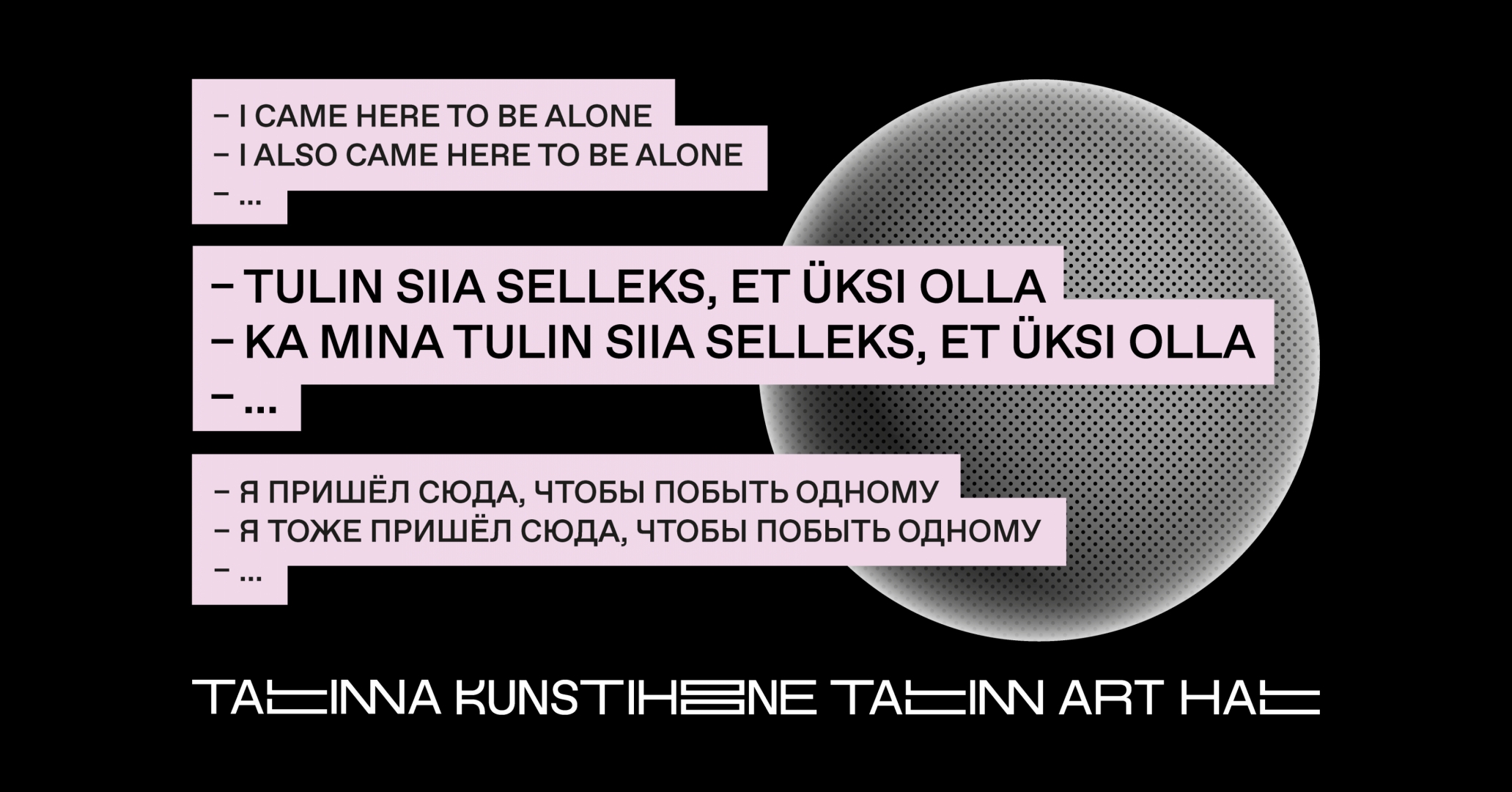The exhibition I came here to be alone – I also came here to be alone draws inspiration from a 1959 film Baltic Express by Jerzy Kawalerowicz, which revolves around the communication between two strangers, forced to co-exist in confined conditions – the claustrophobic world of a tight train cabin. The train journey is a catalyst which tests what kind of chemistry can be created in unstable and uncertain conditions. From the perspective of a passenger, everything in the world is in motion, while from the perspective of someone not on the train it is quite the opposite. Baltic Express reflects on these two phenomena and focuses on a pivotal moment in time. Every story we tell or read about home or about our recent history, now has a different landscape looking out of the window of this train. The world as we know it is no longer the same, and our imaginative space has transformed.
In the foreword of the exhibition booklet, curators Corina L. Apostol and Kristaps Ancāns explain: “This exhibition reflects the many interactions, stories and intertwined experiences that open a certain void that has exploded in our societies during the pandemic and the current crises, revealing what had been masked by an emptiness that still lingers. How should we act, how can we trust each other, and what does this new crisis-era culture look like? Turbulences can sometimes open new ways of approaching things, as we no longer need to follow canons that have been built beforehand. Have the “new us” developed the skills or even some superpowers to cope with transformation or are our levels of loss and grief quietly rising? How do we deal with what has happened and the present challenges, while still waiting for the train to arrive at a new destination?“
Once they got to know one another’s different yet related contexts, collaborating, living and making art together gradually acquired a deeper meaning for the eight participating artists. Transforming and taking over the gallery windows, Dzelde Mierkalne and Junny Yeung have built two claustrophobic, almost cinematic environments, reflecting on how in the current times the home and the workspace have become enmeshed into an uncomfortable functional third space. Johannes Luik and Krišjānis Elviks’ works create the scenography of this exhibition from what has been left behind – or from someone left behind after a journey. Through their own bodies, Alise Putniņa and Maarja Tõnisson test in repetitions how our mind and body connects or disconnects in everyday journeys when something disrupts our intentions. Alyona Movko-Mägi and Madara Gruntmane have created a series of moving digital avatars of locals from Riga reciting love poems. The videos make them seen, not less than human, but also not like us in an avatar state.
Dr. Corina L. Apostol is a curator at the Tallinn Art Hall, curator, and member of the steering committee of the international practice-based research project Beyond Matter (2019–2023), and the curator of the Estonian Pavilion at the 59th Venice Biennale (2022). Corina is also a guest lecturer at MA POST, Art Academy of Latvia. She is the co-founder of ArtLeaks, and editor-in-chief of the ArtLeaks Gazette. She was longlisted for the Kandinsky Prize (2016) and the Sergey Kuryokhin Prize (2020). She is the winner of the apexart 2022–23 exhibition proposals competition in New York.
Kristaps Ancāns is an artist, writer, and educator whose practice spans installation, sculpture, language and moving images. His practice investigates the confusion between humanity, nature, and machines through a conceptual game with its own artificial intelligence. Ancāns was awarded the Cecil Lewis Sculpture Scholarship and the Helen Scott Lidgett Award. He is the co-head of POST, the interdisciplinary master’s program at the Art Academy of Latvia.




